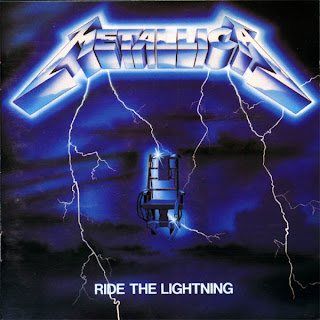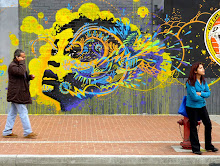"I wasted time, and now time doth waste me." -William Shakespeare
Shakespeare, most commonly known for advocating "All the World is a stage, and all the men and women merely players," knew the importance of embracing the challenges of life as a unique character. Along with his anthemic quote "To thine Ownself be true," Shakespeare knew his plays could reveal bigger truths about how people are meant to acknowledge their 'roles' in life: people are meant to work together with the understanding that differences in a unity are necessary. At this stage in the journey, multiple pathways will call the traveler to a certain path of learning that will benefit the collective whole in a unique fashion.
In Primitive Mythology, Joseph Campbell writes that in agriculturally-based societies, the 'lesson of the plants' is that an individual is "a mere cell or moment in a larger process."
This is similar to the Ancient Greek symbolism of the pomegranate's unique internal structure of mathematically equal chambers encompassed in a web. This web represents the connective forces of human interaction which contains everyone equally.
Psychologist Carl Jung writes that it is important for the individual to avoid the seduction of "splendid isolation" and to relate to the collective through the uniqueness of that individual path. If fountains represent the source of energy, then bodies of water represent the collective ideas of meaningful caliber.
In A Dictionary of Symbols, J.e. Cirlot Writes:
"In India, water is generally regarded as the preserver of life, circulating throughout the whole of nature, in the form of rain, sap, milk and blood. Limitless and immortal, the waters are the beginning and ending of all things on earth. Water is, of all the elements, the most clearly transitional, between fire and air (the ethereal elements) and earth (the solid element). In the cosmogony of the Mesopotamian peoples, the abyss of water was regarded as a symbol of the unfathomable, impersonal Wisdom. By analogy, water stands as a mediator between life and death."
Henry David Thoreau, on his own personal journey, discovered the power of water as a reflective medium and potential departure ground. He says:
"A lake is the landscape's most beautiful and expressive feature. It is the earth's eye; looking into which the beholder measures the depth of his own nature."
Shakespeare, in his tragedy King Lear demonstrates what happens when a wealthy and authoritative man can goes from prosperity and triumph to a state beyond total destruction before becoming purified. The plot was adapted by legendary Japanese director Akira Kurosawa for the 1985 epic Ran. In the film, Lord Hidetora (Tatsuya Nakadai) partitions his kingdoms to two of his three children, which in turn gruesomely betray him and send Hidetora to the wastelands of his kingdoms, where he primally disintegrates and collapses into nothing, only to return to his kingdom purified and renewed.
When the culmination of sensations overpowers the five senses, the result is empowerment. Ceylonese philosopher Ananda Coomaraswamy writes:
"No creature can attain a higher grade of nature without ceasing to exist."
The dire states of disillusioned frenzy undertaken by the acting of Tatsuya Nakodai will send the audience into unremitting paralysis on his journey. In his catastrophic dissent to madness, the broken and battered Lord Hidetora finds himself more centered than ever before. Jungian psychologist Donald Williams writes:
"In itself, the idea of Power embraces the notions of extreme self-awareness and integrity, defensive concentration of forces, appropriation and domination of the environment, and effulgence." Destruction and obtaining power seem to go hand in hand.
"Overcoming fear naturally expands the possibilities of conscious awareness and allows for more objectivity. The man of power needs to open to the vulnerability of the heart. The Huichol Indians of Mexico recognize this fact and honor the need for a balance between power and vulnerability by using a chair made of strong and weak
woods in all healing ceremonies."
When the character of King Lear is at his moment of cleansing empowerment and unleashes his primitive instincts of fury and rage, he shouts:
What we have here is the emergence of a titan. Rather than ignore the elements, Lear unleashes his mighty wrath in retaliation to all power in general. While he is thrashed by the winds and rain, he is channeling the righteous fury of chaos, simultaneously reborn a titan. According to Stanislav Grof, M.D.:
"The suffering and agony faced now culminate with "ego death," an experience of total annihilation on all levels - physical, emotional, intellectual, and spiritual."
Kalle Lasn, author of "Culture Jam" writes:
"These experiences are so engrossing to the senses - in this instant, this act - that people actually feel they are living out of time. Zen Buddhism call peak experiences satori. Living in the moment, pursuing the authentic gesture, living close to the edge - when it's genuine, it's the force that makes life worth living."
Enter the modern adaptation of this theme: Fight Club.
In Fight Club, Edward Norton portrays a 'Narrator' that doesn't exist. To "feel" again, he attends group therapy meetings, before finding a man called "Tyler Durden," who fills the Narrator's wound with vinegar to teach him the lesson of pain, radically transforming him into a powerful fighting machine. Because the first rule of Fight Club is that it can't be talked about, the only quip needed from Tyler Durden is:
"It's only after we've lost everything that we're free to do anything."
The immense layers of meaning in Fight Club are gripping and multitudinous. The area of research pertaining to becoming a Titan are called "existential interpretations" of the plot. Because many people go through intense personal struggles on a daily basis, Destruction and Renewal can be any event of bestial cleansing. The narrator says:
"Every evening I died, and every evening I was born again, resurrected."
Legendary boxer Muhammad Ali craved the power of primal forces and consequently became one of the greatest fighters in history:
"Only a man who knows what it is like to be defeated can reach down to the bottom of his soul and come up with the extra ounce of power it takes to win when the match is even."
While Muhammad Ali was a true warrior, we're looking for warriors with interconnecting abilities like Fight Club. The movie is in itself the blueprints for creating an underground network based on primal cleansing. Substitute the brutish fighting for rock concerts, where mighty sounds are produced from a small trifecta of warriors and crowds generate collective energy. This path is for those with minds that operate like an engine constantly searching for 'fuel.' If this is you, the responsibility of balancing between forces is the key to connecting with others. You have been cleansed by the brutality of the powerful forces, and that is your ultimate weapon.
In other words,
backlink checker
















No comments:
Post a Comment